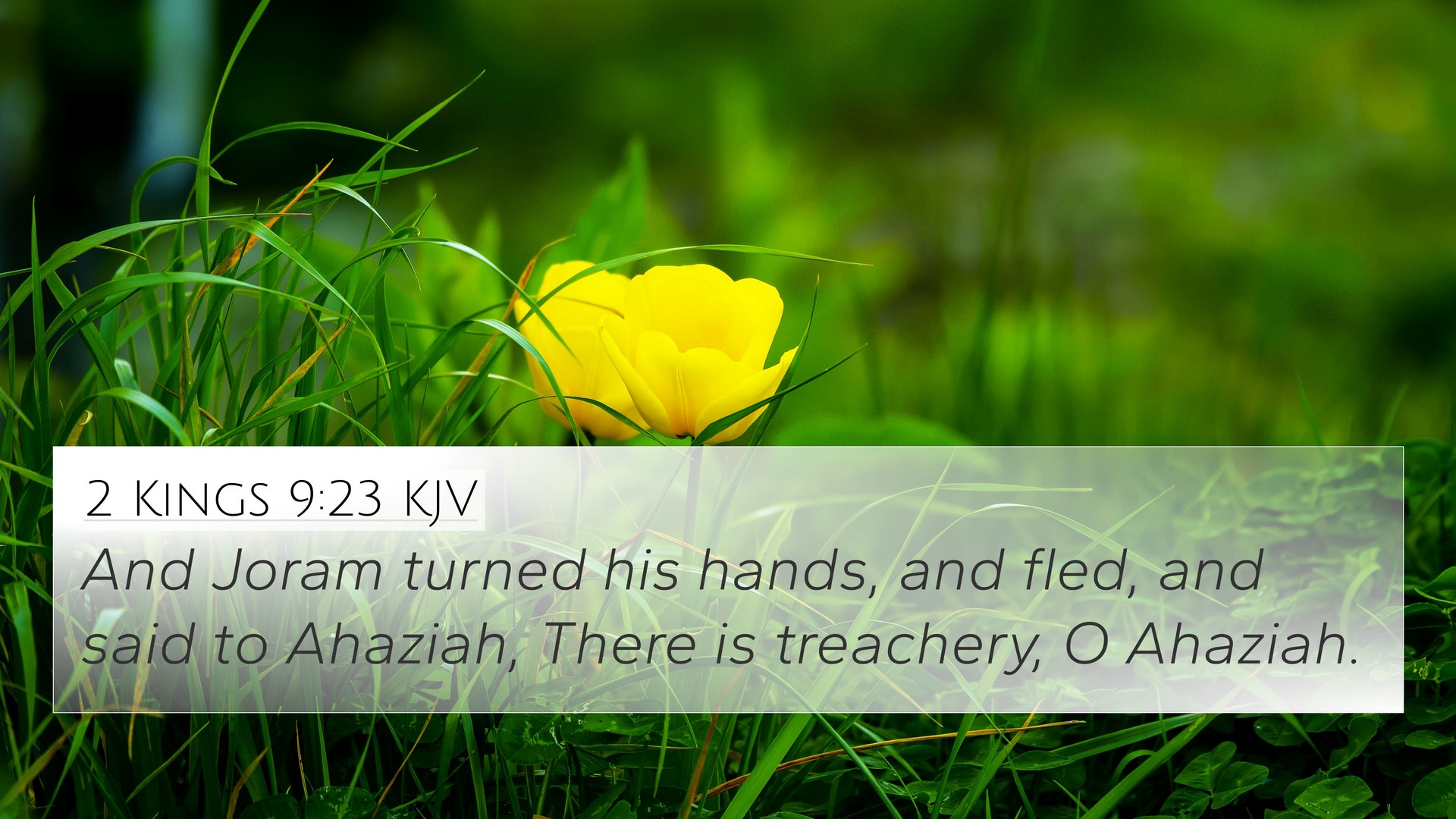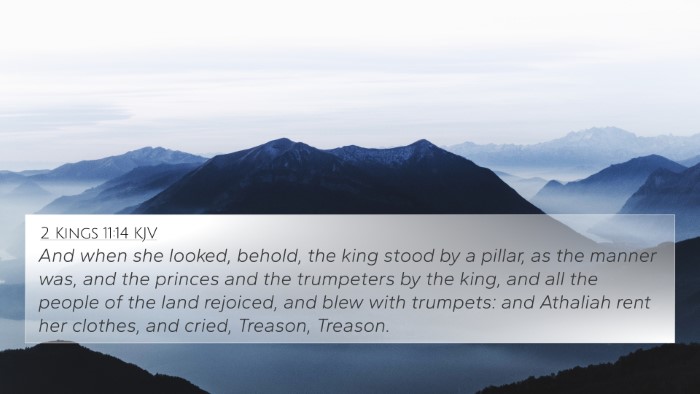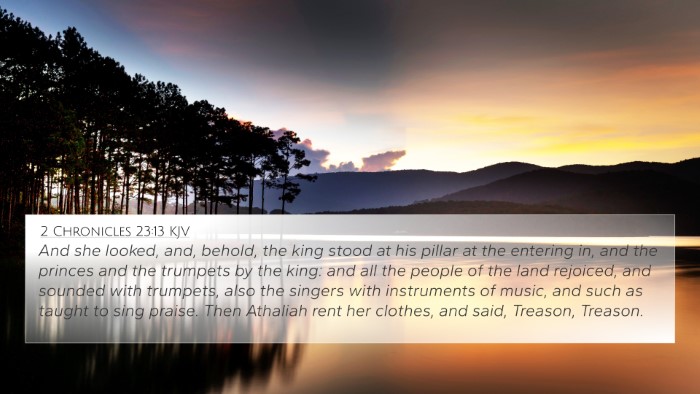Understanding 2 Kings 9:23
The verse 2 Kings 9:23 states: "But Jehoram turned his hands, and fled, and said to Ahaziah, There is treachery, O Ahaziah." This moment captures the heightened tension and danger presented in the narratives of the kings of Israel and Judah. Below, we explore the meanings and interpretations of this verse, drawing from various public domain commentaries.
Contextual Background
The historical context of 2 Kings provides significant insight into this verse. At this time, Jehoram, the king of Israel, faces Jehu, who has been anointed by God to bring judgment upon the house of Ahab. The treachery mentioned by Jehoram indicates the peril he feels as Jehu approaches, showcasing the themes of conflict and divine retribution.
Commentary Insights
-
Matthew Henry:
Henry emphasizes the spiritual significance of the treachery mentioned. He suggests that Jehoram, being aware of Jehu's mission against the house of Ahab, realizes that his reign is threatened. This reflects a broader theme of God’s sovereignty over nations and the consequences of turning away from Him.
-
Albert Barnes:
Barnes highlights the fearful reaction of Jehoram, illustrating his understanding of the imminent danger. He notes the term 'treachery' indicates not only physical peril but also a spiritual betrayal, as Jehoram had aligned himself with Ahab's sins. This moment is pivotal as it reflects the consequences of idolatry and unfaithfulness to God.
-
Adam Clarke:
Clarke discusses the implications of Jehoram’s flight. He sees this act as both a literal retreat and a symbolic representation of fleeing from divine judgment. This aligns with the recurring biblical theme of divine justice and the moral accountability of rulers.
Key Themes
- Divine Judgment: The verse showcases God’s judgment being executed through Jehu, reflecting the theme of God’s sovereignty and retribution.
- Fear and Retreat: Jehoram’s reaction illustrates human fear when faced with divine justice, which is a common theme throughout the scriptures.
- Treachery and Betrayal: The elements of treachery point towards not only political maneuvering but also highlight the spiritual betrayal that can occur within leadership.
Bible Cross-References
This verse connects with several other biblical texts that emphasize similar themes of judgment, betrayal, and divine intervention:
- 1 Kings 19:16: God's instructions to anoint Jehu as king.
- 2 Kings 9:6: Jehu’s anointing and the mission given to him.
- 1 Kings 21:21: God's judgment against Ahab's house for idolatry.
- Jeremiah 22:20-23: Prophecies regarding the demise of wicked rulers.
- Ezekiel 30:4: Prophecies against Egypt, illustrating God's control over nations.
- Isaiah 10:5-6: God's use of Assyria as a tool of judgment.
- Hebrews 10:31: “It is a fearful thing to fall into the hands of the living God,” emphasizing the concept of divine judgment.
Connections Between Bible Verses
In exploring the connections between Bible verses, several common themes emerge:
- Linking Bible scriptures: The understanding of leadership, accountability, and divine judgment is echoed through various leaders in the Bible.
- Comparative Bible verse analysis: Evaluating Jehoram's fear in 2 Kings 9:23 alongside Adam's response to God's command in Genesis demonstrates human reactions to divine confrontation.
- Inter-Biblical dialogue: By considering other instances of divine judgment, deeper insights into God's character and purpose are revealed.
Tools for Bible Cross-Referencing
When studying scriptures like 2 Kings 9:23, utilizing cross-referencing tools is beneficial:
- Bible Concordance: An essential tool for identifying connections between verses and concepts.
- Bible Cross-Reference Guide: Helps in locating verses that support a given theme or narrative.
- How to use Bible cross-references: A methodical approach, enabling readers to explore thematic continuities.
- Bible chain references: A technique for linking verses in related themes, enhancing understanding.
Conclusion
2 Kings 9:23 serves as a critical point in the narrative of Israel's history, illustrating themes of divine judgment and the complex dynamics of leadership. Understanding this scripture within its biblical context allows for a rich exploration of God's word, highlighting the interconnections between various texts and themes.




